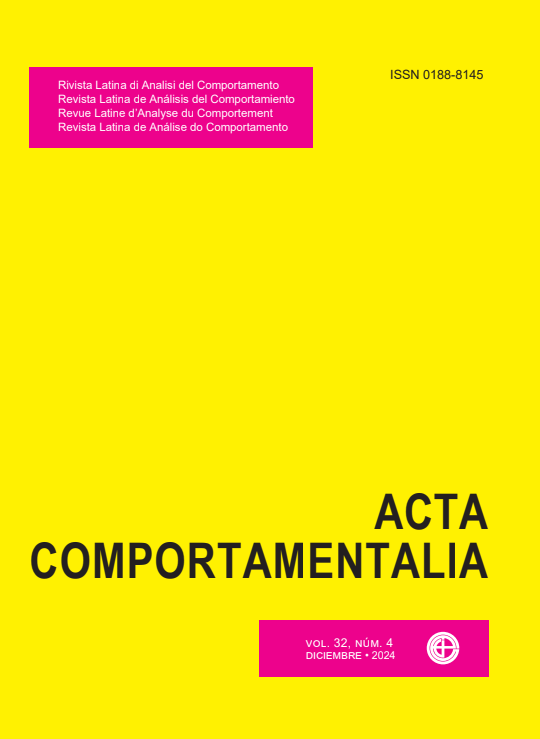Rumo a uma Psicologia Social Comportamentalista Radical
DOI:
https://doi.org/10.32870/ac.v32i4.88494Palavras-chave:
análise do comportamento, psicologia social, política, sociedade, autonomia intelectualResumo
O objetivo deste estudo reflexivo é oferecer contribuições teóricas para a construção de uma psicologia social comportamentalista radical. O escopo deste campo de pesquisa e ação estaria na mediação entre os fenômenos comportamentais individuais e a vida social em suas dimensões sócio-históricas, o que estabelece a relação entre conhecimentos particulares e universais como um problema teórico fundamental. A relação entre o conhecimento universalizado a respeito dos fenômenos comportamentais e as dimensões particulares das realidades sócio-históricas (para além das realidades individuais) favorece o compromisso com as necessidades próprias da população local e com a contribuição à ciência do comportamento como um todo, a partir de nossa diversidade e de nossas especificidades. Dessa interpretação teórica, derivamos algumas direções gerais: a meta-análise crítica permitida por uma psicologia social do comportamento científico; a investigação sobre a formação social da subjetividade; a aproximação aos estudos sociais latino-americanos; e o uso de métodos de pesquisa e ação social em contextos diversos. O caminho é favorável a um maior envolvimento do comportamentalismo radical no debate político, por meio do tratamento a questões sociais concretas do cotidiano com foco em aspectos pertencentes ao campo de estudos da psicologia.
Downloads
Downloads
Publicado
Como Citar
Edição
Seção
Licença

<a rel="license" href="http://creativecommons.org/licenses/by-nc-sa/4.0/"><img alt="Licencia de Creative Commons" style="border-width:0" src="https://i.creativecommons.org/l/by-nc-sa/4.0/88x31.png" /></a><br />Este obra está bajo una <a rel="license" href="http://creativecommons.org/licenses/by-nc-sa/4.0/">licencia de Creative Commons Reconocimiento-NoComercial-CompartirIgual 4.0 Internacional</a>.






